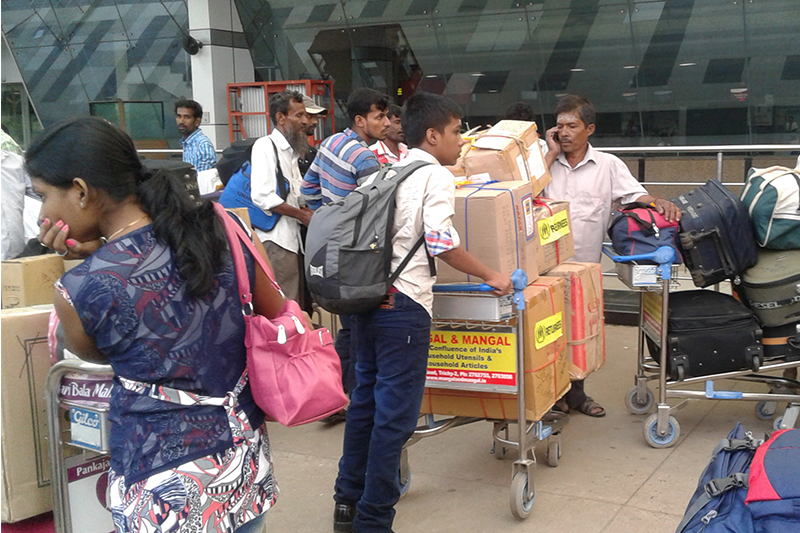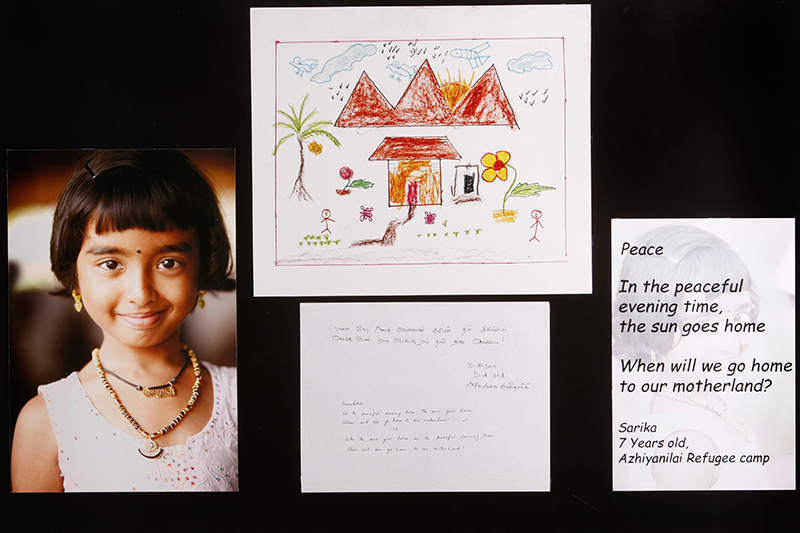
Refugee Return
The civil war in Sri Lanka was long and brutal, lasting a quarter of a century (1984-2009), killing thousands and displacing tens of thousands more. Today, over seven years after this conflict ended, there are one lakh Sri Lankan Tamil refugees in India, with over 67,000 people in camps and 40,000 living elsewhere in Tamil Nadu. OfERR’s Refugee Return and Reintegration program in partnership with Act for Peace is aimed at facilitating voluntary and considered repatriation of camp-based refugees by providing vital support systems to refugees who are ready to return home, enabling access to livelihoods, assistance and protection to those who have already returned to Sri Lanka, and influencing the Indian and Sri Lankan governments through diplomatic measures to strengthen resettlement policies to ease this transition process.
While 40% of refugees in camps are currently willing to return to their homeland, many of these potential returnees who have been in Tamil Nadu for a long period of time have concerns about the availability of basic services, the status of their land/property and access to employment opportunities in Sri Lanka. The RRR program seeks to address and alleviate these anxieties and also create and sustain a network of refugees, humanitarian organizations (including OfERR Ceylon, UNHCR and Act for Peace) and government authorities who make a collaborative effort to ensure the safety, dignity and empowerment of returning refugees.
Since its launch in July 2015, the program has had several milestones and successes. Following extensive lobbying by OfERR, the Government of India’s Minister for External Affairs requested a list of refugees willing to return and promised to provide large passenger ships for this process. In Sri Lanka, with OfERR’s advocacy efforts, the GoSL (Government of Sri Lanka) included refugees in its National Policy on Durable Solutions for Conflict-Affected Displacement which erstwhile only applied to Internally Displaced Persons (IDPs) – this move now enables refugees to be on par with IDPs while being considered by the Ministry of Resettlement in Sri Lanka for government housing and livelihood schemes. Through OfERR’s advocacy, five fully functioning support cells within the GoSL’s District Secretariat have been set up, making it possible for former refugees to receive 100,000 Sri Lankan rupees per family as part of this livelihood scheme. 140 houses in Jaffna district have been allocated to returning refugees as a direct result of OfERR’s efforts.
OfERR has also influenced the decision of the GoSL to set up a Steering Committee with the support of OfERR Ceylon and UNHCR to acknowledge and solve problems faced by returning refugees. The program also assists refugees in obtaining important civil and legal documentation including Sri Lankan citizenship papers.
OfERR India is conducting extensive surveys in refugee camps to identify all important questions, issues and concerns of potential returnees and responding to these queries following consultations with Sri Lankan government officials, land officers, past returnees and OfERR Ceylon and repeating this process until refugees are satisfied with the information provided. Simultaneously, livelihood training is being provided to refugees based on vacancies and the need gap in Sri Lanka for these professions. A real-time database of refugees along with their skill sets alongside the vacancies as identified by the Sri Lankan government is maintained to match refugees with these requirements upon return. OfERR has set up 92 Humanitarian Information Centres (HICs) in camps which provide practical guidance and distribute information in the form of the book Puthu Vazhvu (New Life) which is now in its second (updated) edition.
Last and certainly not the least, OfERR has helped set up 67 Farewell Groups (in Indian refugee camps) and 27 Welcome Groups (through OfERR Ceylon) to function as a powerful support system during their return and after. Several thousands of refugees have considered Tamil Nadu their home for thirty years or more, and resettlement is an emotional process. The RRR program seeks to be the bridge to successful rehabilitation and give other refugees the confidence needed to return in the future.




